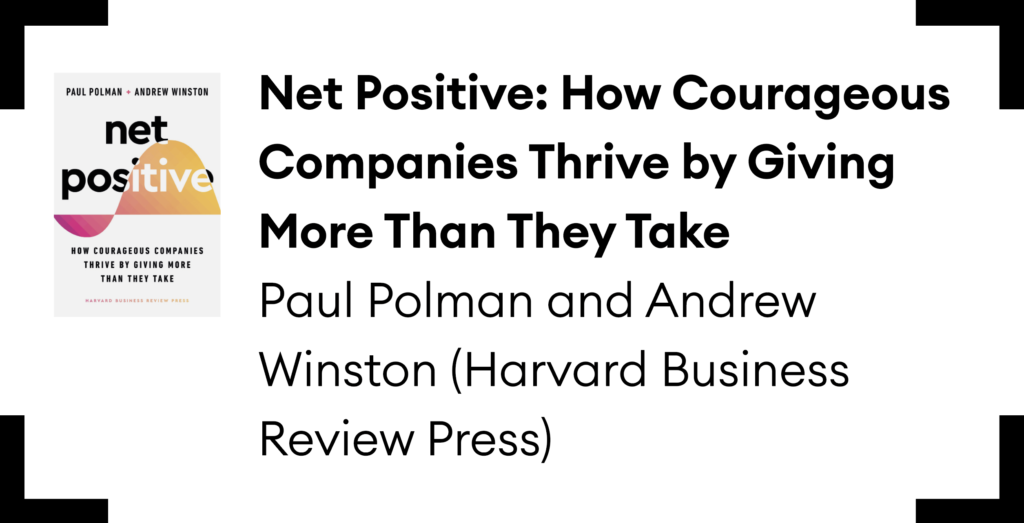Net zero is not enough. Businesses need to give more than they take, according to a new book.
Are we set up to fail on the climate crisis? The COP26 climate conference saw $130 trillion of private capital allocated to accelerating the transition to a net-zero economy. It is more than enough money, many believe, to do the job. But doubts have been expressed as to whether it will be used effectively. Are there enough green investment opportunities? And can institutional investors actually use the money to genuinely drive change, given that they are governed by fiduciary responsibilities which are often interpreted as maximizing short-term returns?
Paul Polman and Andrew Winston, authors of Net Positive: How Courageous Companies Thrive by Giving More Than They Take, believe they have the keys to solving this vital issue. Their premise is that businesses need to do more than simply do no harm – net zero. They need to make the world a better place – to be net positive. The world is facing existential challenges: climate change, a collapse in ecological diversity, declining soil fertility, shortages of vital resources and inequality, all of which are caused or exacerbated by the way we do business. Business has created the problem; business must provide sustainable solutions that serve the interests of all its stakeholders.
The authors draw heavily on Polman’s time as chief executive of Unilever, the multinational consumer goods company, from 2009-2019. Large multinationals can have an enormous influence through their entire value chain – and under Polman, Unilever set out to improve its social impact and decouple its growth from its overall environmental footprint. It makes Net Positive part case-study and part manifesto for an ambitious alternative to the shareholder value model of business.
For Polman and Winston, metrics are key to driving change. They should be tied to the UN’s Sustainable Development Goals and science-based – for example, climate science indicates that global carbon emissions need to be cut by 50% by 2030. That’s a daunting prospect, but, the authors emphasize, targets must not be treated as stretch objectives. They are the bare minimum. If your targets aren’t making you uncomfortable, you’re not pushing hard enough.
The implication is that businesses not only need to be run to very high levels of efficiency, technical competence and managerial skill, but need outstanding leaders with considerable moral courage and determination to drive change, not only within their own business but in society as a whole.
The authors do not shy away from the many and serious obstacles to their vision. For example, investors will need to be prepared for long-term returns rather than quarterly reporting. C-suite executives need to accept lower and fairer rewards for their efforts, while employees throughout the entire supply chain, wherever they are, need to be paid a living wage.
There is also a question of legitimacy. Even when animated by the purest of motives, overpowerful activist business leaders could overreach. Granting NGOs a bigger influence in business, as Winston and Polman suggest, could start to look like an establishment stitch-up and fuel populist revolts. And the model may not be transferable: countries with different priorities, like China or Russia, are unlikely to allow business to play the dominant role in shaping policy that Net Positive implies.
Despite those limits, Net Positive is an important book with big ideas. In previous generations it was typically the financial sector which attracted the best young brains, the most committed and the most ambitious. For the sake of our future, we have to hope that the next generation will be inspired to join
net-positive companies.


